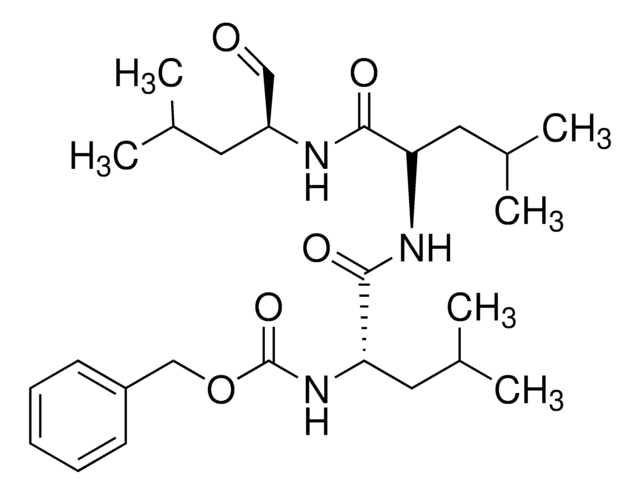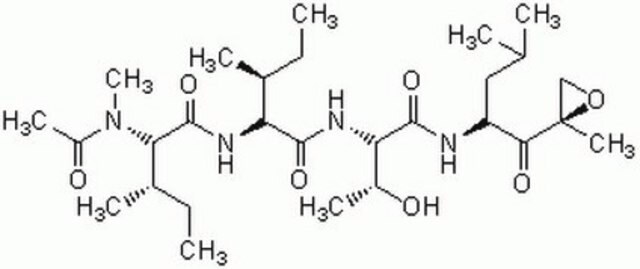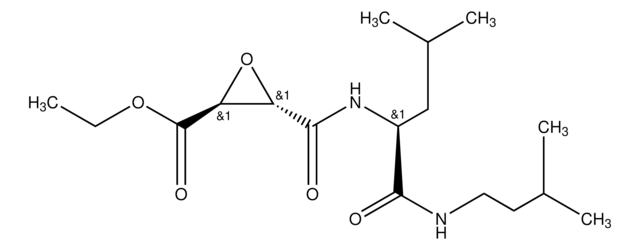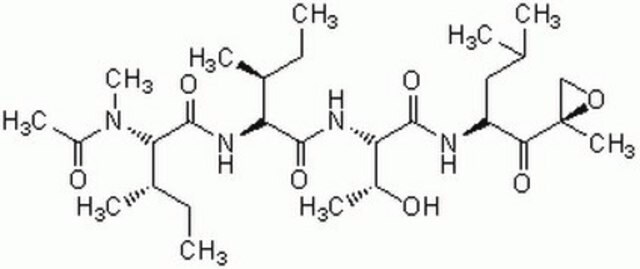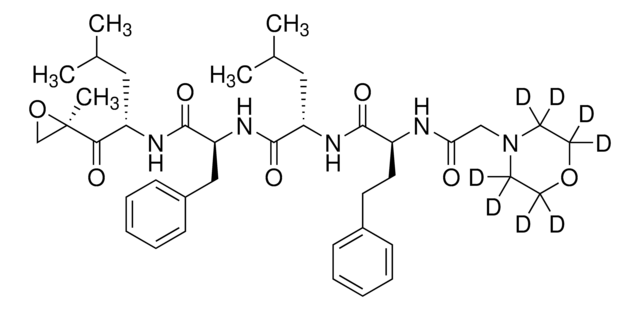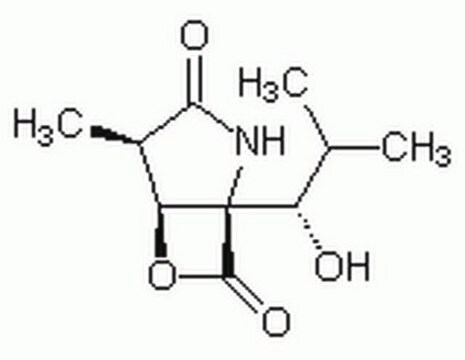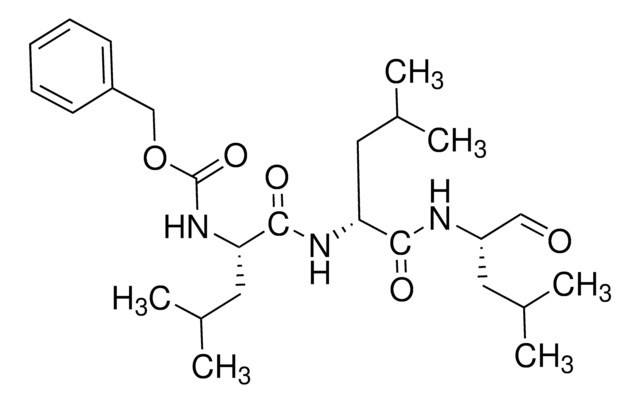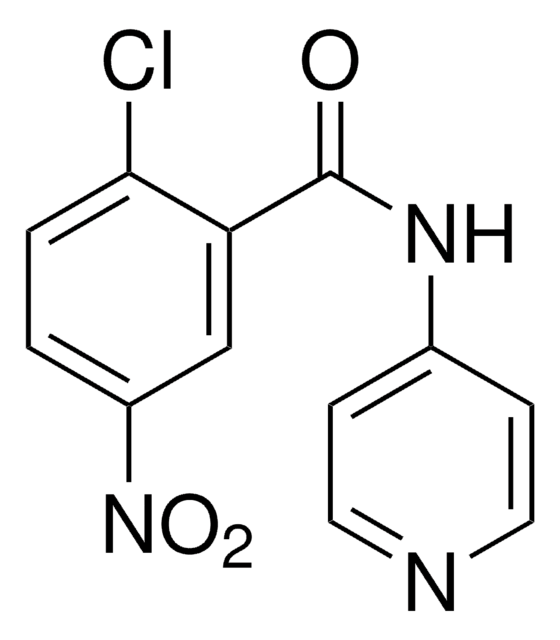E3652
Epoxomicin
≥95% (HPLC), solid
Sinónimos:
N-Acetyl-N-methyl-L-isoleucyl-L-isoleucyl-N-[(1S)-3-methyl-1-[[(2R)-2-methyloxiranyl]carbonyl]butyl]-L-threoninamide
About This Item
Productos recomendados
Nivel de calidad
Ensayo
≥95% (HPLC)
Formulario
solid
temp. de almacenamiento
−20°C
cadena SMILES
CC[C@H](C)[C@H](NC(=O)[C@H]([C@@H](C)CC)N(C)C(C)=O)C(=O)N[C@@H]([C@@H](C)O)C(=O)N[C@@H](CC(C)C)C(=O)[C@@]1(C)CO1
InChI
1S/C28H50N4O7/c1-11-16(5)21(30-27(38)23(17(6)12-2)32(10)19(8)34)25(36)31-22(18(7)33)26(37)29-20(13-15(3)4)24(35)28(9)14-39-28/h15-18,20-23,33H,11-14H2,1-10H3,(H,29,37)(H,30,38)(H,31,36)/t16-,17-,18+,20-,21-,22-,23-,28+/m0/s1
Clave InChI
DOGIDQKFVLKMLQ-JTHVHQAWSA-N
Descripción general
Aplicación
- as an ubiquitin–proteosome system (UPS) inhibitor in pheochromocytoma PC12 cells
- as a proteasome inhibitor in mammary epithelial MCF-10A cells
- as a proteasome inhibitor in chymotryptic assay in cardiomyocytes
Acciones bioquímicas o fisiológicas
Código de clase de almacenamiento
11 - Combustible Solids
Clase de riesgo para el agua (WGK)
WGK 3
Punto de inflamabilidad (°F)
Not applicable
Punto de inflamabilidad (°C)
Not applicable
Equipo de protección personal
Eyeshields, Gloves, type N95 (US)
Elija entre una de las versiones más recientes:
¿Ya tiene este producto?
Encuentre la documentación para los productos que ha comprado recientemente en la Biblioteca de documentos.
Los clientes también vieron
Nuestro equipo de científicos tiene experiencia en todas las áreas de investigación: Ciencias de la vida, Ciencia de los materiales, Síntesis química, Cromatografía, Analítica y muchas otras.
Póngase en contacto con el Servicio técnico